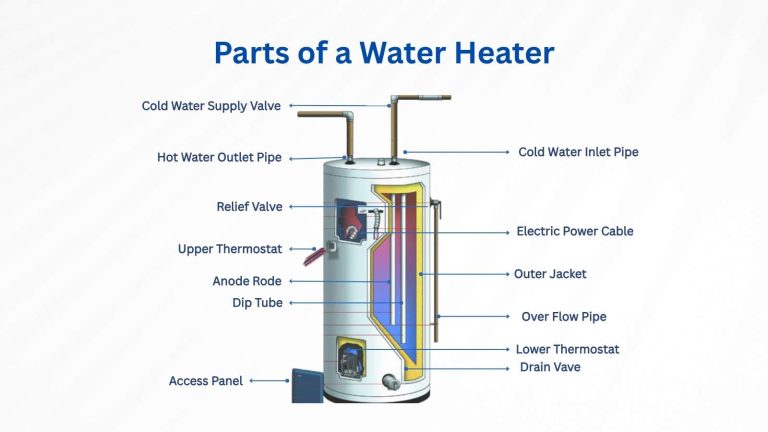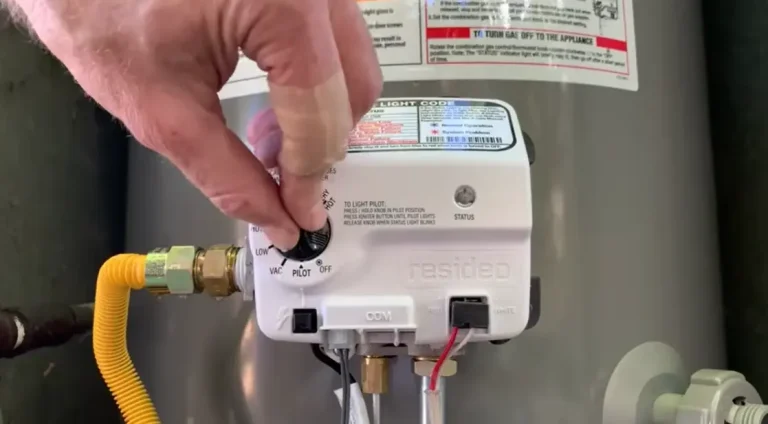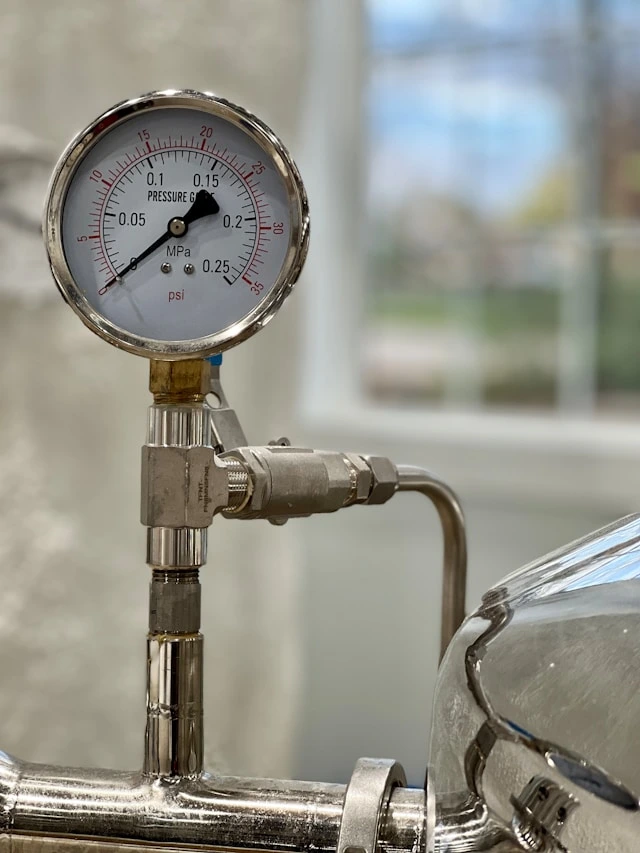What is a water heater? Learn about tank, tankless, gas and electric water heaters.
Introduction:
The water heater provides warm water to showers, washing machines, dishes and other household uses. It is important to understand the different types and sizes of water heaters. You should also know how they provide hot water and how much energy they produce or transfer.
This guide will help you make the best decision for your property, whether you are looking for a new unit home or exploring the electric options.
What is a water heater?
Water heaters are devices that provide hot water to a residence or business by raising the temperature of water. The heater can be a simple tank that holds hot water or a Tankless Heater, which heats the water as needed. Fuels are electric, propane, natural gas and hybrid systems. The right water heater can affect your energy consumption, operating costs and comfort.
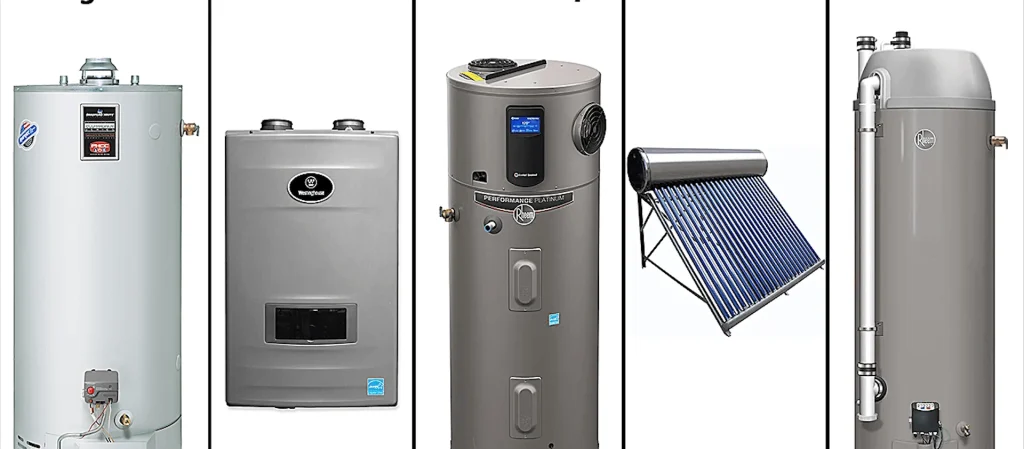
How Water Heaters Work
3.1 Tank (Storage) water heaters
The storage tank heating systems (often called “tank water heater”) are one of the most popular systems. This model:
- Hot Water Tank (storage tank): Cold water is heated with a burner or an electric element.
- The tank holds the hot water until a tap or other appliance requires it.
- Standby energy losses can occur because the water is always kept hot (heat escapes from the tank).
- If you want to replace an old model, it’s common to either keep the tank or go with a tankless heater.
3.2 Tankless water heater
Tankless models, also known as demand-type water heaters, only heat the water when it is needed. The key points are:
- The hot water is available on demand, rather than being stored. This can reduce the heat loss from standby.
- These are compact and space-saving.
- Due to the demand for water, they require an appropriate flow rate design.
3.3 Heat Pump Water Heater & Hybrid Models
A water heater is more efficient because it uses electricity to not only generate heat, but also to move heat from one location to another. You’ll see the words “hybrid” or “hybrid pumps” used in descriptions of water heaters.
- The uniform energy factor (UEF), according to the United States Department of Energy, is a measure of a water heater’s energy efficiency. Accordingly, the higher the UEF, the better.
- Heat pumps can provide much more heat per unit of electricity than traditional water heaters because they do not generate heat but rather transfer it.
- The models that are more expensive initially, but provide savings in the long run.
Energy Types and best Options
Natural Gas & Propane
In many areas, gas water heaters are preferred because they heat up quickly and have a lower cost of fuel. They are highly efficient when connected to a line or propane. Venting is necessary for tankless gas water or tankless gas water options.
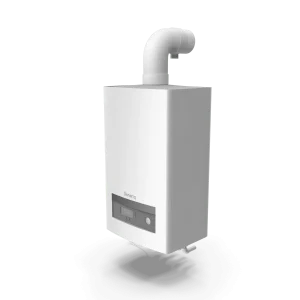
Electric Water Heater
An Electric heater uses electrical resistance or heat-pump mechanisms. Electric models can be easier to install, as they do not require a gas line or venting, but operating costs may be higher depending on the local electricity rates. Cost comparisons show that conventional electric tanks can cost between $400 and $600 per year in electricity. Gas models, on the other hand, are usually cheaper.
Hybrid Heaters& Heat Pump Systems
Hybrid Heat Pumps combine heat pumps with backup electric resistance heaters. These systems are marketed either as heat pumps or as “hybrid”. These systems offer significant savings for those who are looking to maximise energy efficiency. DOE noted that many electric storage units would switch to heat pump water heating systems for the new efficiency standards.
Compare types of water heaters.
Tankless vs. Storage Tanks
| Feature | Storage Tanks | Tankless Models |
|---|---|---|
| Hot water availability | Stored hot water ready | Heated on demand when needed |
| Standby heat loss | Yes – heat loss from tank | Minimal – no tank of heated water |
| Up-front cost | Generally lower | Often higher |
| Lifespan | ~10-15 years (depending on type) | ~20+ years often |
| Space required | More space (tank) | Typically less space |
| Best for | Homes with moderate water usage | Homes wanting efficiency & on-demand flow |
How to Choose the Right Water Heater For Your Home
6.1 Factors that Should Be Considered
Consider these factors when choosing a water heater:
- Choose the water heater that is best for you and your family.
- The source of fuel is either natural gas, propane or electricity. Local utility rates are a factor, as is the availability of gas lines or vents.
- Energy Efficiency and eventual operating costs, not only the purchase price.
- You can find out if you qualify for a rebate or a tax credit if you install an energy-efficient unit.
- You can check the brand (Rinnai, ProLine(r), etc.) and availability of parts for water heaters in your area.
- Check your home’s ventilation requirements, especially if you use gas or propane.
- Installer and plumber availability.
- Compare shop water heating heaters and take into account the first-hour rating, flow rate, size, and tankless.
What to look for when shopping for water heaters
- Check for the UEF rating (Uniform Energy Factor).
- Make sure the unit is suitable for your demand.
- Ask the installer if your existing natural gas line is sufficient and if electricity is available near the water heater.
- Check the warranty, maintenance needs, and availability of parts and repair.
6.3 Tax Rebates and Credits
Most regions offer rebates and tax credits to high-efficiency models, especially heat pump water heaters. In some cases, a heat pump water heater could reduce your annual hot water costs as low as $100-$160.
Before purchasing, check out local programs and take that into consideration.
Important Note
Important: Select a water heater with a balance between upfront cost and long-term savings. A tankless water heater may be more expensive initially, but it can reduce your energy costs and lower your operating expenses.
Call-To-Action
Want to dive deeper? Explore our articles on [internal-link:/how-to-size-a-water-heater] and [internal-link:/benefits-of-heat-pump-water-heaters] to learn how smart sizing and cutting-edge technology can optimise your hot water system.
The conclusion of the article is:
It is important to choose the right water heater. Your decision will affect your comfort, energy costs, and performance over the long term. Understanding the various types, fuels, and efficiency factors, as well as evaluating the needs of your home, will help you choose the best water heater for cost, efficiency, durability, and reliability. Efficient selections = lower energy bills and better performance.
Like this article? Please share it. Subscribe to receive more tips and guides on water heating, plumbing and energy saving strategies.
The FAQ
Q1 – How long will a water heater typically last?
A1 – Depending on the fuel type and maintenance, a traditional water heater can last between 8-15 years. Models without tanks can last up to 20 years.
Q2 What is the main difference between a storage water heater and a tankless model?
A2 A storage water heater keeps water warm in a large tank, ready to use. A tankless model warms water only when needed. This eliminates standby heat losses and offers higher energy efficiency.
Q3 Can I replace my gas water heater with an electric water heater?
A3: Yes. However, you will need to verify your electrical service and circuit capacity. You may also have to upgrade the wiring. Electric resistance heaters can cost more per year, depending on the electricity rate.
Q4 Are there rebates and tax credits available on efficient water heaters?
A4? Yes, many regions and utilities offer rebates. USA Federal programs may also provide tax credits to models that are ENERGY STAR-certified or heat pump-certified. Check local eligibility.
Q5 – How do I choose the right size tankless water heater?
A5 – The tankless is sized based on the amount of water that will be used (gallons/minute) and the desired temperature (difference in water temperature between the incoming and desired water temperatures). To ensure the correct system is selected, consult a professional plumber or installer.

